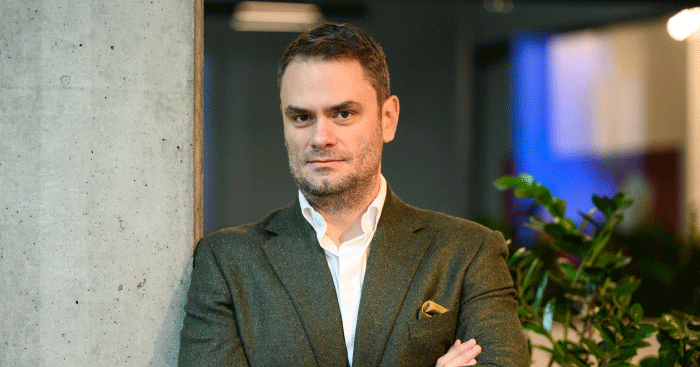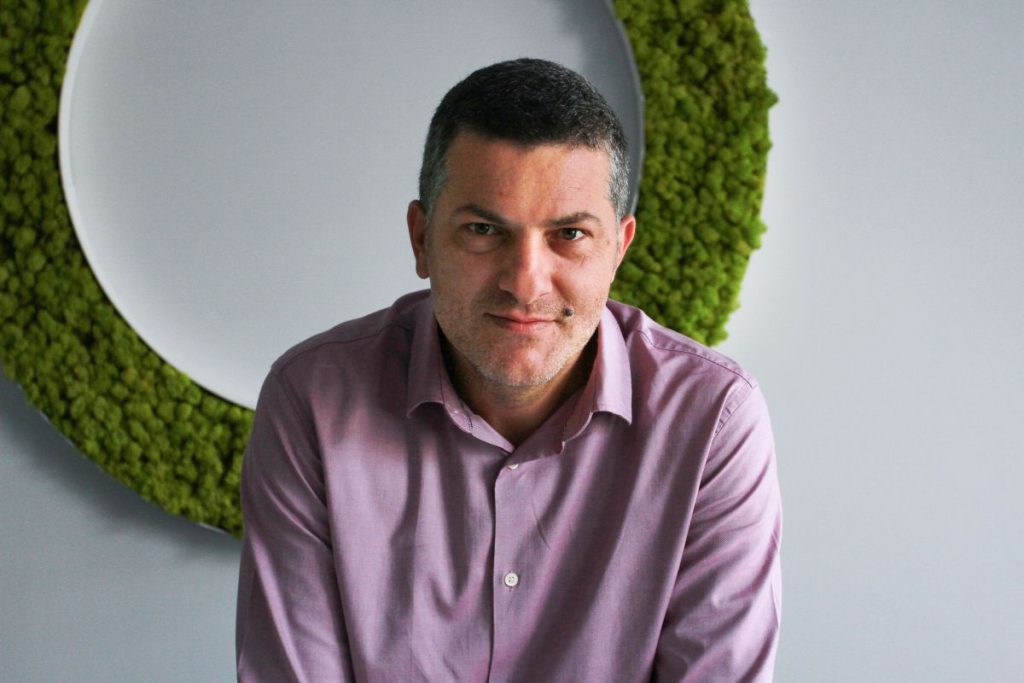Growth or decline? Slowdown or acceleration? Lack of sufficient work and highly qualified staff? You’ve probably heard some of these words about the IT industry in our country in the year that’s gone by, including on H512.com’s Job Board, where we frequently post data about the job market and trends related to tech professionals in our country.
Today we ask the leaders of the country’s leading IT organisations – AIBEST, BAIT, BASCOM, BESCO, BRAIT, and the regional IT Association Stara Zagora – for their predictions and comments on the coming year 2025.
You will see more detailed analyses provided by some of them in the media section of H512.com in the coming weeks.
“Bulgaria’s high-tech sector is at a crossroads.”
These are the words of Ilia Krastev, Chairman of AIBEST, CEO of A Data Pro and member of the Board of BRAIT.
“The decisions we make today – whether in education, policy or investment – will determine our trajectory for decades to come. By innovating, expanding talent and strengthening regional leadership, we can ensure sustainable growth and solidify our position as a global leader in high value-added services.”

He expects cloud technology, cyber security and digital transformation to remain key areas of development. “Furthermore, the integration of technologies such as blockchain and the Internet of Things (IoT) will transform a number of industries in Bulgaria,” he adds.
Krustev stresses that AI is only part of the equation. “The fusion of AI with other technologies will create entirely new ecosystems, forcing businesses to innovate even faster.”
According to him, Bulgaria is still among the leading countries in Southeast Europe in terms of economic competitiveness. “To maintain this leadership position, Bulgaria needs to address key challenges such as unpredictable tax policies and a limited labour market,” says the chairman of the Association for Innovation, Business Services and Technology (AIBEST).
Ilija Krastev believes that 2025 will be a year of cooperation. “Cooperation between the state, academia and the private sector is crucial. We need clear policies that encourage research and development, as well as support for start-ups to build a more sustainable innovation ecosystem.”
IT companies remain important for Bulgaria’s development
The IT sector will continue to grow as a share of the economy in 2025, according to Dobromir Ivanov, executive director of the Bulgarian Entrepreneurs Association (BESCO). According to him, more opportunities for local IT companies are opening up due to the fact that Bulgaria has a low level of digitalization and implementation of artificial intelligence (AI).

“In 2025, the new early stage funds of the Fund of Funds are expected to be launched, as well as the Technology Transfer Fund. The aim is to put more focus on deep tech and the connection of entrepreneurs and science,” he said.
In the new year, the organisation will continue to pursue its goals, and expects to grow to more than 1,000 members. “We believe that despite the political instability, the issues we are fighting for, such as digital nomad visas, the Investment Promotion Act, pension fund investments in VC funds, angel investments and many others, are consensual and we will be able to implement them in the coming months.”
According to Dobromir Ivanov, we need to talk more about “where we are going as a country”. “There is a lack of conversation about Bulgaria’s vision and our place in the world in the coming decades. We believe that it is the entrepreneurs from the technology industries who can be the voice that sets an adequate direction for the development of our country and we will look for more ways how to be useful not only to companies, but also to the society as a whole,” the BESCO CEO noted.
For 2025, he expects the topic of defence innovation to become more discussed amid the geopolitical situation.
The factors “political environment” and “investment“
Irina Radoyeva, Chairperson of the BBAIT Board, is also of the opinion that the IT industry will continue to be a key factor in the country’s economic situation.
“It is going to be a difficult year for companies connected to the national market, especially state and municipal administrations, given the unstable state governance, the lag in the absorption of Recovery and Sustainability Plan funds, and the lack of an up-to-date budget for the coming year.”
According to Radoyeva, those who implement AI developments in their practice will have a competitive advantage. “Bulgaria is also lagging behind Europe in this, and Europe is lagging behind the US and China,” she said.

Another key topic is cyber security. “An important and upcoming work of the state is to adopt the amendments to the Cyber Security Act, which transposes the NIS2 Directive. Traditionally, Bulgaria lags behind here and experts report that the overall level of cybersecurity of digital infrastructure is low.”
Irina Radoeva also warns that Bulgaria is no longer perceived as a place with “cheap labour”. “Many of the foreign companies that used to outsource their operations to the country are revising their intentions, which is also related to the lack of predictability in the political and therefore tax environment. At the same time, there has not been a large inflow of new foreign investors,” she adds.
However, she expects the demand for highly qualified IT specialists to remain and their salaries to increase with it. Radoeva points out that there is also much to be desired in the field of education, as the training of staff in schools and universities affects the development of companies. In this direction, BAIT is already taking measures with its working group in the field of education, recommending the return of the National Programme “IT Business Teaches”.
Explore more
The strength of regional organisations
Regional IT organisations continue to be active locally and among the most prominent this year is undoubtedly the IT Stara Zagora Association.
President Boryana Peycheva counts as a success the opening of a new IT high school in 2020, and over the past five years she and her team have conducted nearly 100 initiatives. This year IT Association Stara Zagora also organized the first meeting of IT companies from small settlements.

“What do we expect for 2025? For the sector in the country – we cannot say for sure yet. There will continue to be growth, but in 2025 it will be rather close to that in 2024 – around 12-15%, rather than aiming for the traditional 25-30% in the years before. My view is that there will be new investment. In this ‘weak’ year for the sector alone, the data reports 450 new IT companies in the market,” she noted.
Against this backdrop, however, she expects both the entry of big players with development centres in the country and the withdrawal of large companies from the market, which she said has been happening over the last two years.
Boryana Peycheva believes that the potential of Bulgaria and specifically of Stara Zagora will continue to unfold. “Frankly speaking, I expect more financing deals and acquisitions of Bulgarian companies in the coming year. Things have started moving and we have information through various channels that global companies are eyeing the Bulgarian IT business and there is even interest in companies in Stara Zagora.”
Salaries, AI, drop in demand for people
In the new year, the Bulgarian Association of Software Companies (BASCOM) will continue to pursue its goals for the development of the IT sector. According to the chairman of BASCOM’s board, Krum Hadjigeorgiev, the sector’s growth continues, and this was confirmed by the annual Barometer 2024 report.
“However, it is not 25%. The growth of the sector that we expect is around 10-15%. It is also related to what is happening on the labour market,” Hadzhigeorgiev told H512.com earlier in 2024. His comments were confirmed by the data for 2023 – according to BASCOM, growth is 16.5 per cent, while the expected growth for the coming year is 12.4 per cent. More on this topic here.
According to Krum Hadzhigeorgiev, the decline in demand for people is due to multiple factors and is stabilizing. “Businesses are starting to return to growth, which means again with some slowdown that the labour market will start to have demand again. The pace won’t be like the post-panic, but demand is starting to recover and so is the labour market. The question is when we will see it – our expectation is that it will happen in the next 12 to 18 to 24 months,” he added in a conversation in August.

Currently, according to H512.com, there are about 66 thousand IT specialists working in the country. Hadzhigeorgiev commented that along with business, salaries are growing. “There are probably individual cases where companies are hiring at lower levels. But the question here is at lower levels of what? From the insanely high ones a year and a half ago that didn’t give the value they were worth to be paid?”
This year’s BASCOM survey showed that 100% of software companies in the country are now embracing artificial intelligence (AI).
“If we represent a high-value-added industry in this country, AI is helping it become even higher. It helps us to become a stronger sector because we add more and more value not only for companies but for the whole society,” Hadzhigeorgiev believes.
One for all, all for one
This year, the Bulgarian Employers Association for Innovative Technologies (BRAIT) announced a unification of the associations, clusters and companies that are part of the country’s high-tech economy.
Dobroslav Dimitrov has been at the helm of BRAIT since 2023. BASCOM took over the presidency for two years.
“This unprecedented unification we have achieved in a year and a half makes us very proud. We have over 30 member organisations and we exceed 20% of the economy. This 20% is currently not involved in the national dialogue. That’s why it’s important for us to get into the National Tripartite Council – where employers, the state and unions talk, they are missing a huge amount of information that is actually with us,” he stressed.

Dimitrov pointed to access to talent, the development of the environment and the rule of lawas BRAIT’s priorities .
He also reiterated the organization’s goal of creating 10 new technology schools in the country, in addition to the five currently up and running. “These schools will not replace mathematics high schools. We are not breaking what works. Profiled high schools are absolutely necessary, but we need an ecosystem of technology schools. They are schools that are technological on the horizontal, because technology is in every field, but economic on the vertical,” Dimitrov said.
Progress in building technology schools is being made in Vratsa and Smolyan.
A few words also from Svetoslav Dimov, CEO of H512.COM
When we talk about the development of the IT industry in Bulgaria, it is important to make the following distinction – in the last 18 months there has been a lot of talk about the industry slowing down, which is misinformation. There is a slowdown in the growth of the industry.
What is the difference? In a purely economic sense, ‘industry slowdown’ means that turnover or the number of people employed in an industry is falling. ” A ‘growth slowdown’ means that the industry continues to grow, but at a slower rate than in previous periods. Indeed, whereas for most of the last 10 years the industry grew at over 20% per year, for 2023 and 2024 (forecast) growth is between 10 and 20%.

For 2025, we expect the trend to continue – there will be growth, but it will not be explosive. The number of open positions on the market will rise slightly. The situation remains difficult for people just entering the industry.
I expect there will be pressure on pay in the sector because of the increasingly similar cost of service levels in Bulgaria compared to larger markets such as Poland. In the hottest areas, such as Cybersecurity and Data Science, we may see a rise, but overall pay levels will be maintained.
In the short term (2025), the geopolitical environment and global financial policies will have the biggest impact on industry development.
And what are your expectations and comments on the development of the IT sector in 2025? Do you have anything to add to our interlocutors’ analysis? Email us at gabriela@dev.bg!


 Publish date: 19 December, 2024
Publish date: 19 December, 2024




